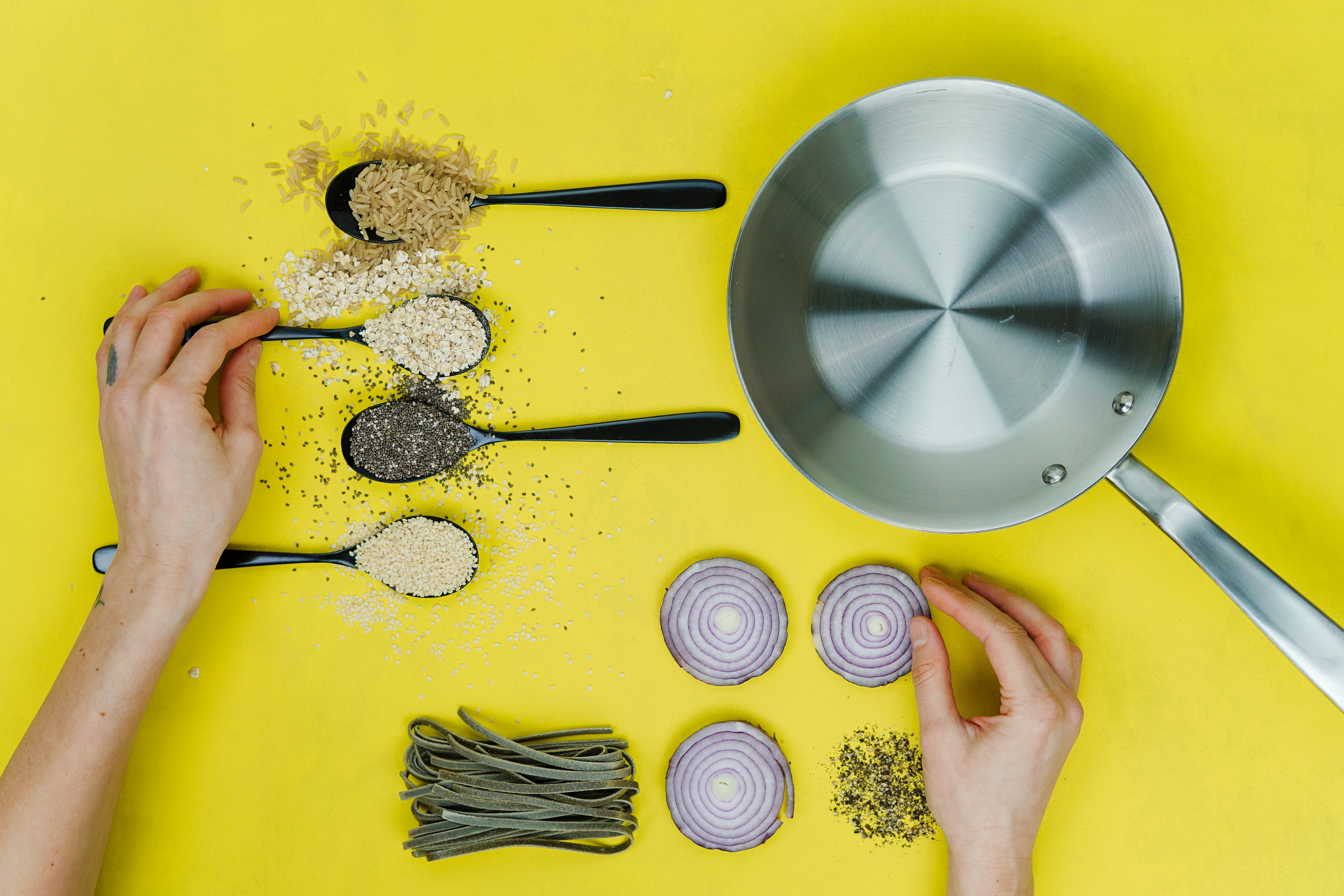I didn’t feel confident about my cooking until my late twenties. My two young kids thought that meals were supposed to come out in stages, depending on what came out of the oven or off the stove first. And there were many nights we improvised with breakfast foods when dinner was a flop.
While my own cooking has come a long way, it doesn’t surprise me that one in four American adults don’t know how to cook. Since 2015, we’ve been collectively spending more money eating out than on groceries, even though it’s three times as expensive as cooking. Anyone who’s ordered a pizza lately knows you don’t get many slices for an hour of wages, and to make it worse, all that money is turning around precious little nutrients.
Cooking at home stretches the budget, and also means you know what’s in your food. Working with whole and mostly plant-based ingredients means not having to second guess what’s on your family’s plates. You can customize dishes to support your nutritional needs. Kids not getting enough iron? Extra spinach in the pasta sauce. Need an antioxidant boost? Scoop some cacao into your blueberry smoothie. Miss that morning bagel? You can always make a better, more generous bagel at home. Always. Just buy your own capers and lox.
Turn Those Chores and Errands into Quality Time
I got lucky with kids who like to help, and cooking has always been a part of our lives. Being a working mother has meant learning to build quality time into the demands of daily life. Grocery shopping and cooking don’t have to be chores if you approach them as creative projects and get the kids involved.
When my oldest was in kindergarten, he loved pushing around the tiny shopping cart and carrying a list he still couldn’t read. I’d tell him one item at a time, and let him lead the way to find it. I quickly learned to strategize these trips. They took longer with his ‘help’, and were easier during less crowded store hours. But it was always worth it to see grocery shopping (not usually my favorite errand) become a game.
Later when we’d cook together, it meant more to him because he remembered where the food came from, having plucked some of it from the shelves himself. And if you’ve never given a little one their own mixing bowl, a sifter and some flour, it’s a recipe for instant joy. The cleanup is worth it. We share a lot of laughs in the kitchen. And isn’t that what food is really about? It brings us together.
Including Kids in Cooking Makes it Easy to Build Confidence Incrementally
In addition to building in quality time, getting the kids involved in cooking gives them important life skills. It’s been a consistent confidence builder over the years. When they were first old enough to run down to the corner store for extra butter, my kids came back looking like they’d hunted their first mastodon, triumphant young warriors returning home with provisions. Every small success is a chance for them to feel accomplished.
Last week, to give her more of a voice in the meal planning process, I asked if my daughter would like to decide on a meal she wants to eat, and plan it from beginning to end. She could look up the recipe, buy the food (I’ll help budget), cook it (I’ll be there for support if she wants it), and we’ll serve it to the family. We’ll have to wait and see how the food will turn out, but she’s empowered, and that’s what matters most.
Food Prep Means Automatic Science Lessons
Cooking as a family has academic value, too. Every cooking project is a science lesson, with opportunity to talk about safe temperature ranges for cooking and refrigeration, how and why water boils, or what salt does in baking. I’m still not even sure of that last one, so it’s a chance to do my own homework.
Other science lessons can revolve around nutrition and personal care. We now know the USDA’s food pyramid is under debate, so instead, talk about Harvard’s “Healthy Eating Plate”, which is research-based and not influenced by big agriculture funding. Meal prep is also an opportunity to talk about how our food choices affect the planet, and how different communities are solving issues like commercial waste and homeless access to healthy foods. If you have a yard, you can even learn about composting and gardening.
When your kids grow up, they’ll be able to take care of their bodies, their pocketbooks, their families and their earth by cooking. They’ll also have a lot of good memories.


